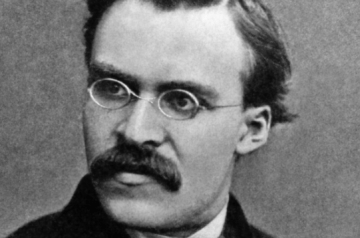Daniel Callcut in Prospect Magazine:
 If the fashionable idea of the 1980s was upward mobility, then the buzzword of this decade is authenticity. This ruling ideal of being true to yourself and “keeping it real” is rarely criticised. But what if the message deters individual transformation and encourages everyone to stay in their place? Is the ethic of authenticity in some ways more conservative than the Thatcherite yuppie message it replaced? I think it’s time to consider how authenticity stands in the way of progress and aspiration. We’ll begin with moral philosophy, touch on my journey from working-class kid to university academic, and consider everything from Pride to Boris Johnson and Donald Trump. We’ll even consider why authenticity can lead to problems getting up in the morning. Here we go. Imagine your partner asks “can you drive to Peterborough to pick up my passport?” and you reply, as positively as you can, “I’d be happy to do that.” You’re not really happy about it: you want to help, but you’d much rather come straight home. You could say that in this moment you are being inauthentic. In fact, we can imagine your partner calling you out on it: don’t say you are happy to if you are not. Perhaps an argument ensues.
If the fashionable idea of the 1980s was upward mobility, then the buzzword of this decade is authenticity. This ruling ideal of being true to yourself and “keeping it real” is rarely criticised. But what if the message deters individual transformation and encourages everyone to stay in their place? Is the ethic of authenticity in some ways more conservative than the Thatcherite yuppie message it replaced? I think it’s time to consider how authenticity stands in the way of progress and aspiration. We’ll begin with moral philosophy, touch on my journey from working-class kid to university academic, and consider everything from Pride to Boris Johnson and Donald Trump. We’ll even consider why authenticity can lead to problems getting up in the morning. Here we go. Imagine your partner asks “can you drive to Peterborough to pick up my passport?” and you reply, as positively as you can, “I’d be happy to do that.” You’re not really happy about it: you want to help, but you’d much rather come straight home. You could say that in this moment you are being inauthentic. In fact, we can imagine your partner calling you out on it: don’t say you are happy to if you are not. Perhaps an argument ensues.
The philosopher Aristotle thought that people ideally did the right thing with pleasure. But he also thought it was a good thing that people aspired to act ethically even when they don’t feel like it. When you say to your partner that you are happy to help you are trying to act as if this were the case. Aristotle thought that this is how the ideal state of virtue is achieved: you keep trying to do the right thing in the right spirit and eventually you get there. Some people express the philosopher’s ideas in a slogan, “fake it till you make it.” Aspiration involves trying to be something you are not until you eventually get there.
Here is the danger with authenticity: it has a tendency to make aspiration look fake. You are trying to be something you are not. But aspiring to be a better person—or better at anything—often involves trying to be something you are (currently) not. Hence the problem. Authenticity is often so bluntly insisted upon that all efforts at change or self-improvement appear phoney.
More here.
